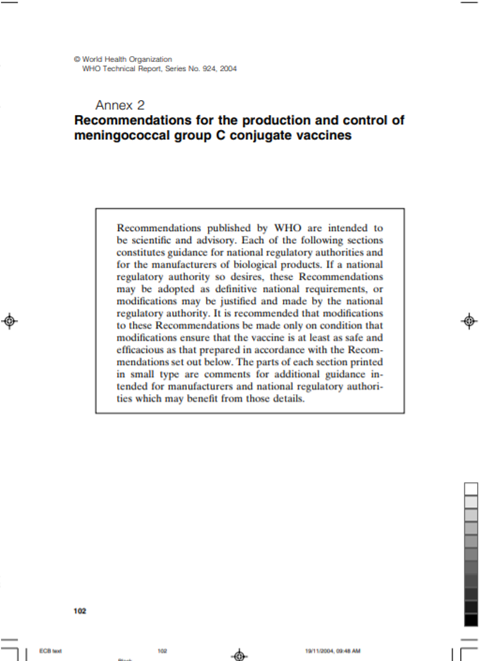Recommendations for the production and control of Meningococcal group C conjugate vaccines, Annex 2, TRS No 924

Overview
The recommendations (formerly known as Requirements) for meningococcal polysaccharide vaccines were adopted by the WHO Expert Committee on Biological Standardization in 1976 (1) and amended in 1978 and 1981(2, 3). In clinical studies these vaccines have been shown to have an efficacy in the region of 90% and have proved to be highly effective in public health interventions (4). Nevertheless, their inability to elicit protective responses in young infants or to induce good immunological memory has prevented their use in national infant immunization schedules.
Following the successful introduction of the Haemophilus influenzae type b conjugate (Hib) vaccines, considerable progress has been made in the development of similar conjugate vaccines based on meningococcal group C capsular polysaccharide. Controlled clinical trials have demonstrated that these vaccines are highly immunogenic in all age groups and, as T-cell dependent antigens, induce immunological memory and affinity maturation of anti-capsular antibodies (5–8, 8– 17). Vaccines based on meningococcal group C conjugates have been shown to offer protective immunity following their introduction in the UK (18). Glycoconjugate vaccines are both physically and immunobiologically distinct from their unconjugated counterparts emphasizing the need for new recommendations for these products.
Full version of the WHO Technical Report Series N° 924
